Three women in politics have grabbed headlines in recent weeks. One is a veteran politician, now facing flak for her actions, or rather inaction. The other is a highly qualified woman who chose to go into politics, and did some things that made her stand out as different but is now falling into the expected stereotype of a woman politician beholden to a male mentor. And the third, known for her physical strength and spirit of defiance, has taken the risk of entering the political circus where she will need more than these two qualities.
The three are Mamata Banerjee, Atishi and Vinesh Phogat. The first has been tested, the second has challenges hovering above her, and the third is still finding her feet.
What is common in all three cases is the expectation that somehow, because they are women, their actions will be different from their male counterparts’ if faced with similar challenges.

Indeed, for decades, those who believe more women should be in politics, and hold office, have argued that not only is this just, given that women represent half the population, but that their presence in numbers would make a qualitative difference to the nature of politics and governance. As Ranjana Kumari, an early and strong advocate for increasing women’s participation in politics in India, reiterated in one of her articles: “Women’s participation in politics is their human right as much as it is the cornerstone of their right to equal citizenship. Across the country, and throughout the world, men’s dominance in politics must be made a thing of the past.”
Unfortunately, men’s dominance in politics prevails. In India, despite several women being elected to power in the states, and at the Centre, one cannot draw any generalised conclusions about their style of governance and whether it differs from that of men in the same position. The women who can assert their individual style are those who also control their political party, as did Indira Gandhi. Others inevitably must fall in line.
Mamata Banerjee and the doctor rape-murder case
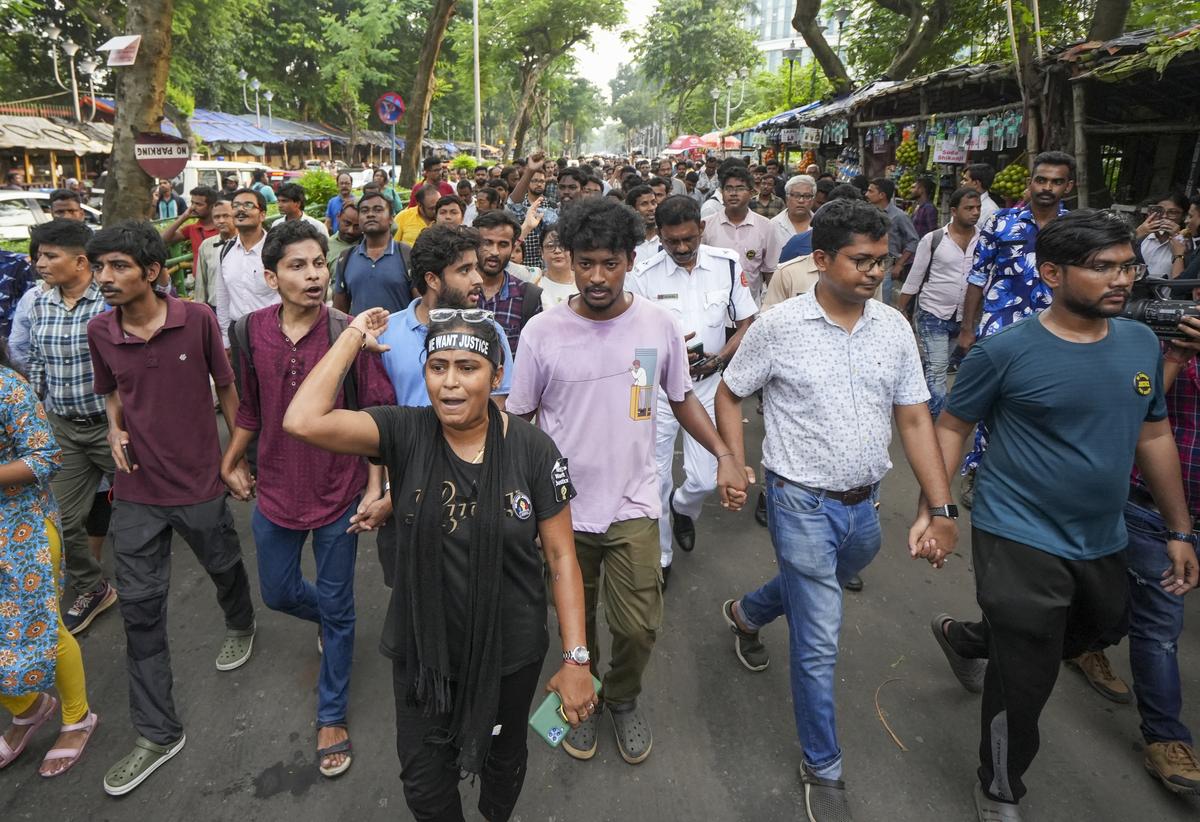
Young doctors take to the streets in Kolkata demanding strong government action in the wake of the alleged sexual assault and murder of a trainee doctor in the city, September 2024.
| Photo Credit:
PTI
Take, for instance, West Bengal Chief Minister Mamata Banerjee. Here is a woman who has made her way in the tough arena of politics without a male mentor. She has earned a reputation as a street fighter and has built a formidable political presence in her state. And she controls her party, much as Indira Gandhi did.
However, the events that followed the rape and murder of a young junior doctor at the R.G. Kar Medical College and Hospital in Kolkata on August 9 have raised serious questions about her leadership style, with critics calling out her insensitivity to an issue that concerns all women.
It was assumed that Banerjee’s response to the protests after August 9 would be sympathetic to the young people on the streets because as a woman, she understood the dangers women face in the public space. Instead, what we saw was a politician at work, trying to ensure that her chief political opponents did not take advantage of the situation. Not only did this push back the central issue, that of women’s safety, but it also disappointed those who expected a humane response from Banerjee.
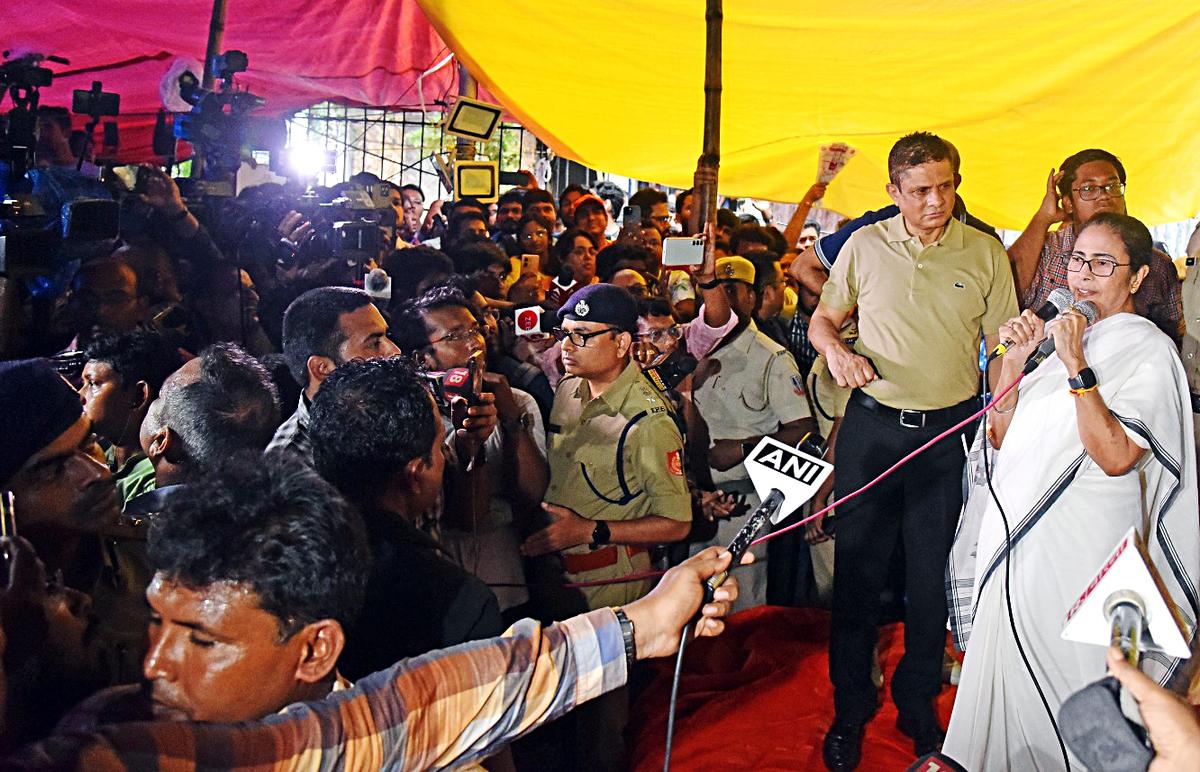
West Bengal Chief Minister Mamata Banerjee addresses doctors who held protests against the alleged sexual assault and murder of a trainee doctor at the R.G. Kar Hospital in Kolkata.
| Photo Credit:
ANI
Although the protests have subsided after the Chief Minister finally agreed to meet the agitating junior doctors, her response to the incidents over the past few weeks has raised several questions about women in politics. Why are only women politicians expected to prioritise women’s concerns even at the cost of political survival? Is it realistic to expect someone politically strong like Banerjee to respond differently to the events around August 9 just because she is a woman?
Besides, what about the 11 feisty and articulate women MPs from the ruling Trinamool Congress (TMC) in the Lok Sabha? Their silence since August 9 has been deafening. Perhaps they were ordered to be silent. Or they tried to intervene behind the scenes. We will never know.
Only one TMC senior member has spoken out and resigned, and that is a man — Rajya Sabha member Jawhar Sircar. In his letter of resignation, not only does he call out the culture of corruption and authoritarianism in the party but also criticises the “faulty handling” of the protests by the West Bengal government.
After Sircar’s resignation, some of the 35 TMC women MLAs in West Bengal were approached by media houses and asked what they thought. Only a handful spoke on the record. While some blamed the police, all of them reiterated that they did not think “Didi” did anything wrong. Their response is not surprising given that no political party permits its members to state their opinions freely, especially if they run counter to the party line. Therefore, to expect women members to speak out just because they are women is probably unrealistic.
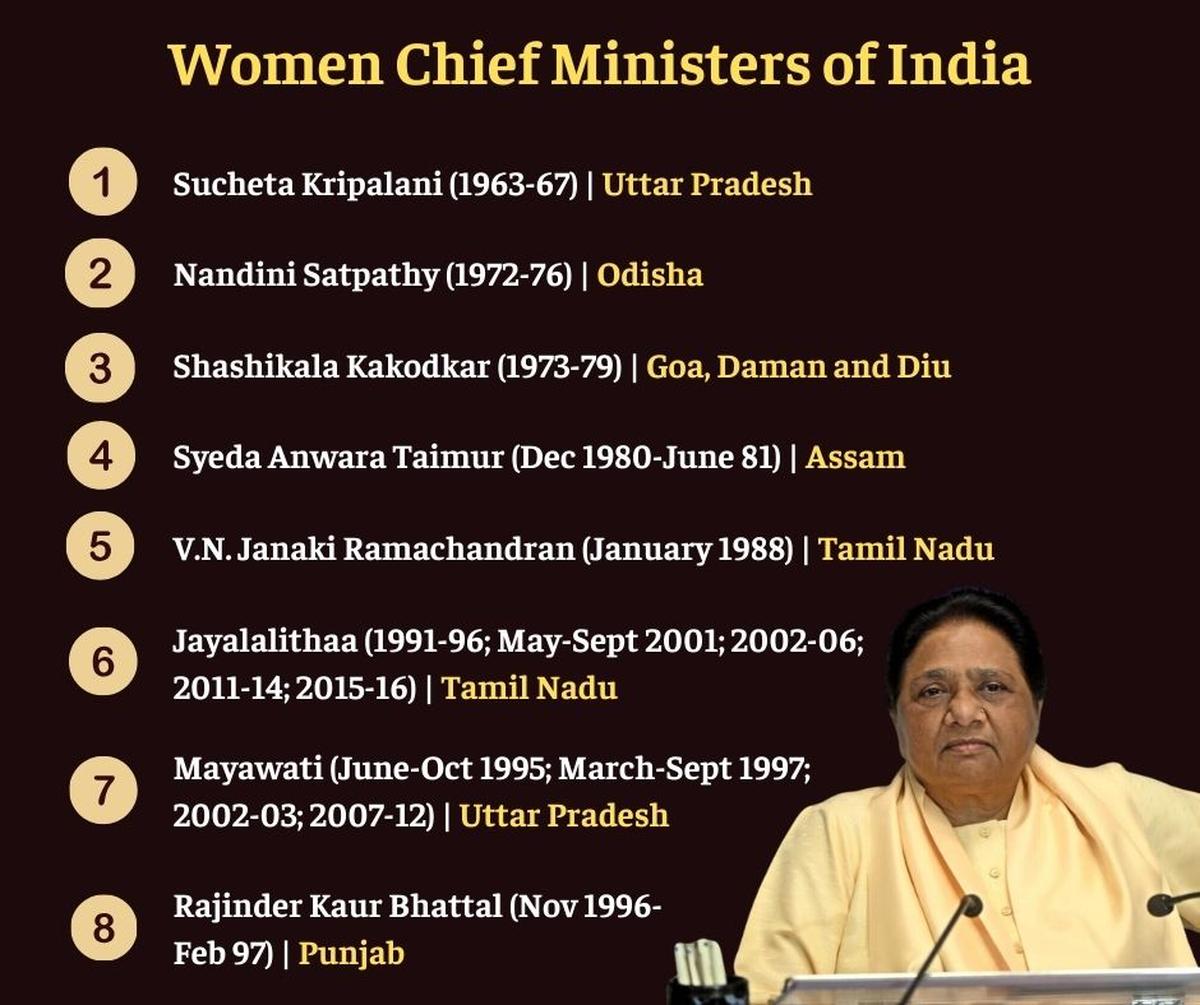
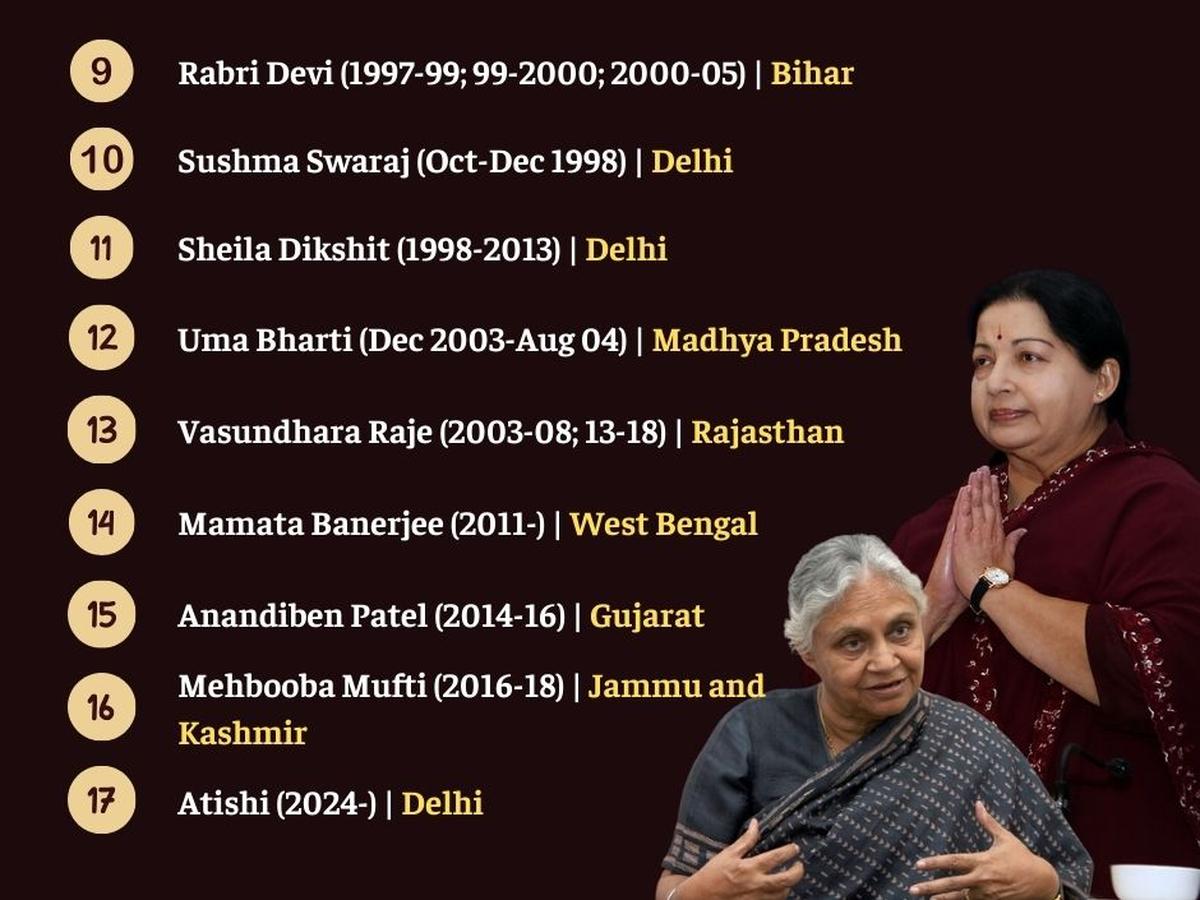
Not taking a definite stand
There are other examples, cutting across the political spectrum, where you see the same scenario playing out. For instance, look at the record of two prominent women from the ruling Bhartiya Janata Party — Smriti Irani and Nirmala Sitharaman. Neither distinguished themselves with a pro-women stance when given the chance.
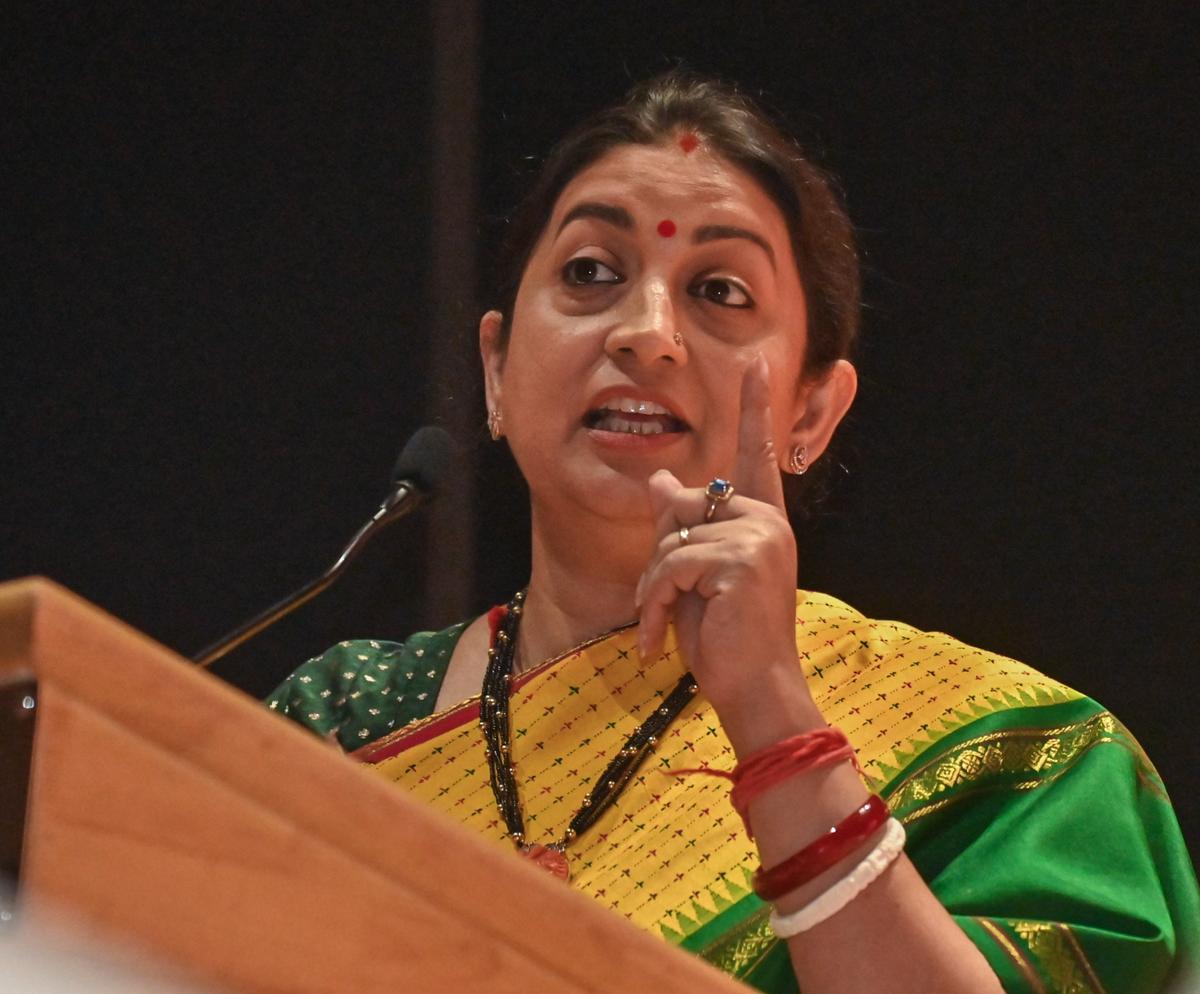
Bharatiya Janata Party leader Smriti Irani
| Photo Credit:
ANI
As Minister for Women and Child Development in the BJP’s second term, Irani strongly condemned atrocities against women, but only if they occurred in Opposition-ruled states. The condition of women in states run by her own party did not move her. The most egregious example of that was her silence, and indeed that of her party, on the gang rapes in Manipur last year. Recently, Sitharaman, who continues as Finance Minister, made some shockingly insensitive remarks following the death of a young woman employee of a leading accounting firm. Although she later backtracked, her instinctive response tells the story.
Finance Minister Nirmala Sitharaman
| Photo Credit:
Dinesh Krishnan
The Atishi story
Until September 21, Banerjee was the only woman chief minister of a state. Today, one more has joined the ranks — Atishi from the Aam Aadmi Party (AAP) who has taken over as the Chief Minister of Delhi after the incumbent, Arvind Kejriwal, resigned on September 17.
Can a woman, who on her own admission is simply a seat warmer, make any difference as the chief minister of a state like Delhi? Although she is not related to Kejriwal, is her appointment any different from that of Rabri Devi, who became Bihar’s chief minister when her husband Lalu Prasad Yadav was imprisoned in the fodder scam case in 1997?
Atishi is highly qualified, with two Master’s degrees from Oxford University. She need not have entered politics. But she did, first as an adviser to AAP for their programme to improve government schools in Delhi and then, after getting elected, as a minister handling multiple portfolios.
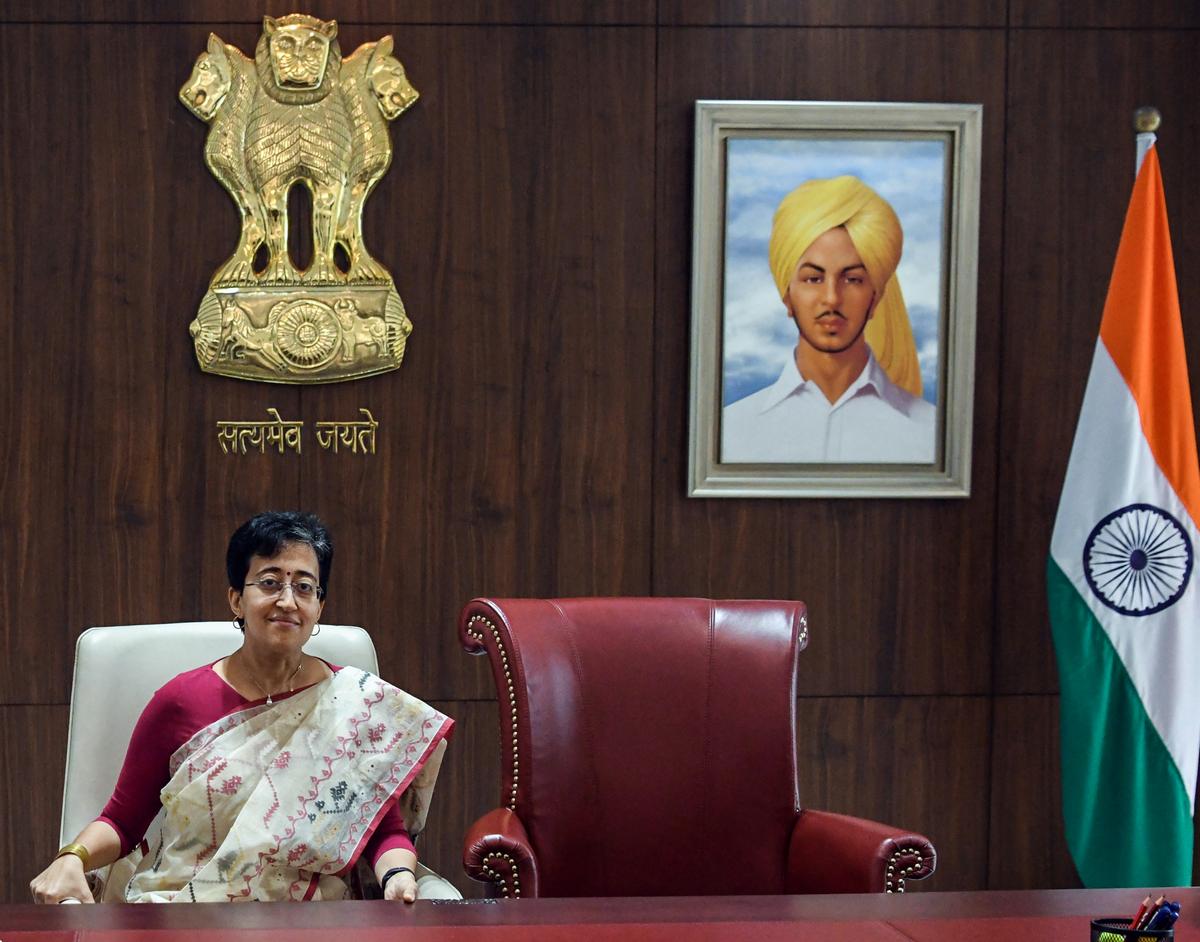
Delhi Chief Minister Atishi
| Photo Credit:
ANI
Kejriwal obviously chose Atishi because she is seen as someone who would not threaten his primary position in the party. That said, for Atishi to bend over backwards to underline that she’s just filling in for the man who has the right to that chair — to the point that she has kept an empty chair in her office — is disappointing and reflects the way women internalise the need to appear subservient to male power. One wonders, if instead of Atishi, Kejriwal had chosen a man, would he have done this?
Vinesh Phogat enters the arena
What about the third woman in the news: Vinesh Phogat? These are early days. She is still a work in progress as a politician but has already created a buzz amongst young women in the ultra-conservative Haryana society. She has become a role model not only as an athlete, and as a young woman who took to the streets to raise her voice against a powerful man, but also for taking a risk by entering the political arena. Whether her training as a wrestler prepares her for the fights ahead in the political field, including the misogyny she has already encountered, remains to be seen.
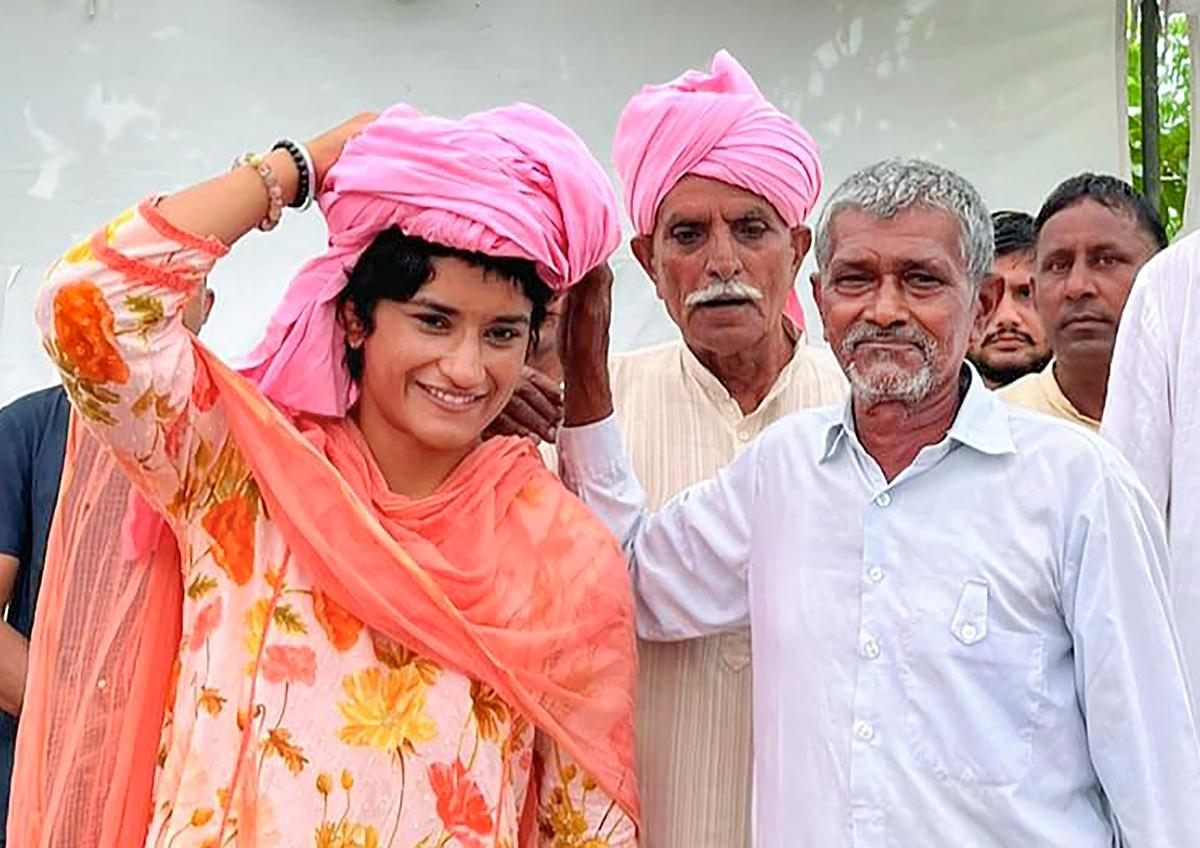
Wrestler and Congress party candidate Vinesh Phogat campaigns in Dhigana village ahead of Haryana Assembly polls.
| Photo Credit:
PTI
Neither Banerjee, nor the women MPs from her party, nor Atishi, have so far convincingly demonstrated a different type of politics from the male-dominated political culture. As in other professions, women manoeuvre within existing structures and societal expectations of how they should behave.
Referring to these expectations, former White House press secretary Dee Dee Myers, who served in the first Clinton administration and was the first woman to hold that position, writes in her engaging 2008 book, Why Women Should Rule The World: “Women are caught in a double bind: expected to act like men — and punished for doing just that…When women in positions of authority, conform to traditional female stereotypes, they are too often perceived as ‘too soft’ to be effective. And when they defy those norms, they are considered ‘too tough’, unnaturally masculine, out of sync. Damned if they do, damned if they don’t.”
Clearly, the Indian women in politics are caught in the same double bind. Their actions are scrutinised far more closely than that of their male counterparts and their numbers in politics are still too small to overturn the dominant political culture.
The writer is an independent journalist and author.

Published – September 27, 2024 03:40 pm IST





